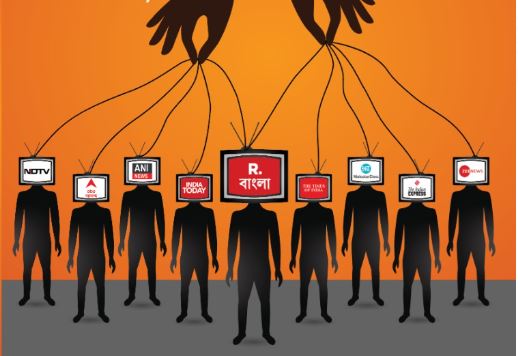
That the sense of gratitude is not perpetual is a proven reality evident in the context of Bangladesh-India relations. During Bangladesh’s War of Liberation, India extended unparalleled support, often beyond its own capacity. India not only provided shelter to 10 million refugees but also ensured their sustenance with remarkable compassion and empathy.
On the historic day of December 16th, the unforgettable scenes of the Pakistani army’s surrender to the allied forces of Bangladesh and India at the Ramna Racecourse remain etched in our collective memory. The open-air signing ceremony and the sky-high cheers from the people of Dhaka as they welcomed the Indian army generals and soldiers were nothing short of incredible.
Where have those profound feelings of solidarity and gratitude gone? Why have they faded over time?
Two key incidents can help us to explain the erosion of positive sentiments toward India in Bangladesh: the Farakka Long March of 1976, led by Maulana Bhashani, and the tragic killing of a 15-year-old girl named Felani in 2011.
The Farakka Long March symbolized widespread resentment over India’s alleged failure to ensure a fair and equitable share of river water, leaving Bangladeshis feeling deprived. Similarly, the repeated killing of Bangladeshis intruders—along the India-Bangladesh border, with Felani’s death serving as a heart-wrenching example, has further fueled anger and distrust. These events reflect deep-seated grievances of Bangladeshis.
India demonstrated remarkable diplomatic success in the early 1970s, particularly under the leadership of Prime Minister Indira Gandhi, who skillfully outmaneuvered her global counterparts. The creation of Bangladesh in 1971 stands as a testament to her strategic acumen and India’s diplomatic prowess during that era.
During I.K. Gujral’s premiership, India adopted the Gujral Doctrine, which emphasized fostering goodwill and cooperation with neighboring countries without expecting reciprocity. This policy created a period of relative harmony and satisfaction among Bangladesh and other neighboring nations.
Unfortunately, in the years since, India’s approach to regional diplomacy has seen a decline, contributing to rising tensions and resentment in its immediate neighborhood, including Bangladesh.
The rise of the BJP as a Hindu nationalist party in India has inadvertently fueled the growth of Islamic fundamentalism in Bangladesh. This dynamic is deeply rooted in the historical and sociopolitical interplay between the two neighboring countries, forming a dialectical relationship that continues to shape their interactions.
A key misstep in Indian diplomacy lies in its tendency to prioritize relations with ruling regimes rather than engaging directly with the people. Effective diplomacy should center on fostering goodwill and trust among the population of the concerned country. Building a sustainable and robust bilateral relationship requires winning the hearts and minds of the populace, thereby creating a foundation of mutual respect and understanding.
Both Congress and BJP governments have blindly supported the Hasina regime in Bangladesh. The BJP government continued to back Sheikh Hasina, even though her re-election was marred by widespread electoral rigging. When a government is installed through such dubious means, it loses the trust of its people. Consequently, the overt support from India for Sheikh Hasina’s regime not only alienated the Bangladeshi people from their own government but also intensified resentment against India itself.
India’s failure to grasp the depth of public anger towards Sheikh Hasina is baffling. Had Indian policymakers truly understood the situation, they might have advised Hasina differently—perhaps urging her to hold free and fair elections or even to resign voluntarily to prevent escalating tensions.
The resignation and departure of Sheikh Hasina have brought a new wave of challenges. As is often the case after regime changes, incidents of persecution against minority communities, particularly Hindus, have surfaced. One particularly troubling case is that of Hindu monk Chinmoy Krishna Das, who has been arrested on charges of sedition. Disturbingly, he has been denied bail, and lawyers willing to represent him have reportedly faced intimidation, with some even being physically assaulted.
As a Hindu-majority country and a close neighbor, India has a moral responsibility to address these issues with sensitivity. The Prime Minister’s Office, through its regular briefings, could express concern over the persecution of Hindus in Bangladesh—much like the way the United States has been vocal about human rights issues. However, instead of adopting a constructive approach, many Indian politicians and media outlets have resorted to relentless denunciations. Indian television channels, in particular, have been saturated with loud and sensational coverage of Bangladesh’s internal events since Sheikh Hasina’s departure.
This incessant vilification not only undermines India’s credibility as a responsible regional power but also risks worsening the plight of the Hindu minority in Bangladesh. A more measured and diplomatic response is urgently needed to support minority rights without inflaming tensions further.
Their actions appear more motivated by political self-interest, with the aim of leveraging communal sentiments to secure votes. They are doing little to help the Bangladeshi Hindu community and, in fact, they have no capacity to effect meaningful change on the ground.
However, these relentless denunciations have caused significant harm to Bangladeshi Hindus. Such actions have fueled distrust between Muslims and Hindus, further straining the already delicate fabric of interfaith relations in Bangladesh. This atmosphere of division has created tangible challenges for Hindus in various spheres of life. For instance, I have come across numerous accounts of Hindu professionals—particularly those in leadership positions in offices and academic environments—facing resistance, disrespect, and even outright hostility from their Muslim subordinates. This toxic environment, largely exacerbated by the polarizing narratives broadcasted by Indian media, is making it increasingly difficult for Hindus to perform their duties and maintain their positions.
A harmonious relationship between India and Bangladesh is essential for fostering peaceful coexistence between Hindus and Muslims, not just in Bangladesh but also in India. Responsible diplomacy and measured rhetoric are critical to building mutual trust and addressing minority issues effectively.
